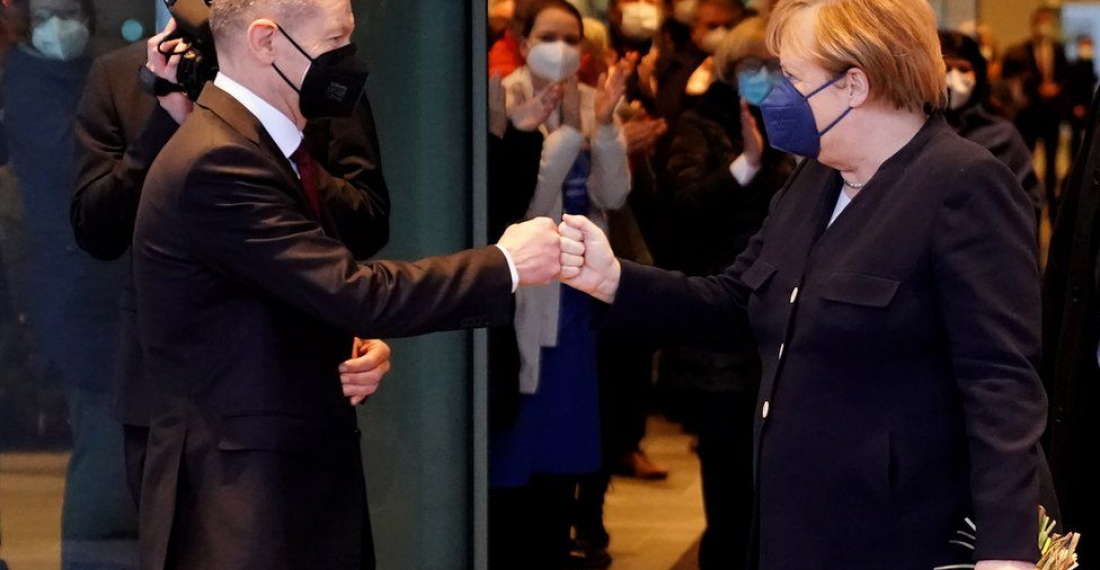There are hardly any more important positions in Europe than that of German Chancellor. Germany remains the economic power house of Europe, even if politically and militarily German plays below its weight due to historical sensibilities.
Angela Merkel held the position of German Federal Chancellor of 16 years. She led the country, and in many ways she led Europe, through difficult moments. She did this with great tact and dignity and she will be missed. Today she formally handed over power to her political rival, Olaf Scholz, who has been sworn in as the new Chancellor. Mrs Merkel herself chose the moment of her departure from front line politics, when she decided not to stand for Chancellor in last September elections. There is no doubt that if she wanted to stay on she could. In the end her political family, the CDU-CSU alliance could not muster enough popular support without her.
Typically of Mrs Merkel, as she left the chancellery in Berlin, ending a 31-year political career, Mrs Merkel told Mr Schoz to approach the task "with joy". His centre-left Social Democrats will govern alongside the Greens and the business-friendly Free Democrats.
The German parliament, the Bundestag, backed Scholz as chancellor by 395 votes to 303, yesterday (8 December) and he was then formally appointed as the ninth federal chancellor by President Frank-Walter Steinmeier.
After the vote in parliament, he was asked by Bundestag President Bärbel Bas whether he accepted the appointment and said "yes". He later took the oath of office but - unlike his predecessor - left out the religious reference "so help me God".
Since the election, Mr Scholz's party has worked with the Greens and the Free Democrats on a coalition deal, which was finally signed on Tuesday. All 16 ministers took the oath of office on Wednesday, becoming Germany's first cabinet to include as many women as men.
Strong leadership in and by Germany is necessary if Europe is to succeed in meeting the challenges of the future. Tomorrow Mr Scholz will travel to Paris and Brussels for meetings with the French President and with the EU leadership. After Brexit, the Franco-German alliance is the most important sub group within the EU. Synchronising with the French president has been one of Mrs Merkel's big tasks, and achievements. Brussels too needs to be managed. German politicians express frustration at both, but have learned to be patient and persist. In that way they have been able to achieve much, without brinkmanship politics being necessary.
Whilst Mr Scholz is a known politically quantity, having served as Vice Chancellor under Mrs Merkel, it is not time for his particular style of governing to come to the fore. Quite what that will be will have to be seen. For today, it is enough to say "thank you to Mrs Merkel", and "welcome to Mr Scholz". The new Chancellor will be tested soon enough and he has a big task if he wants to outperform Mrs Merkel.






